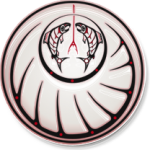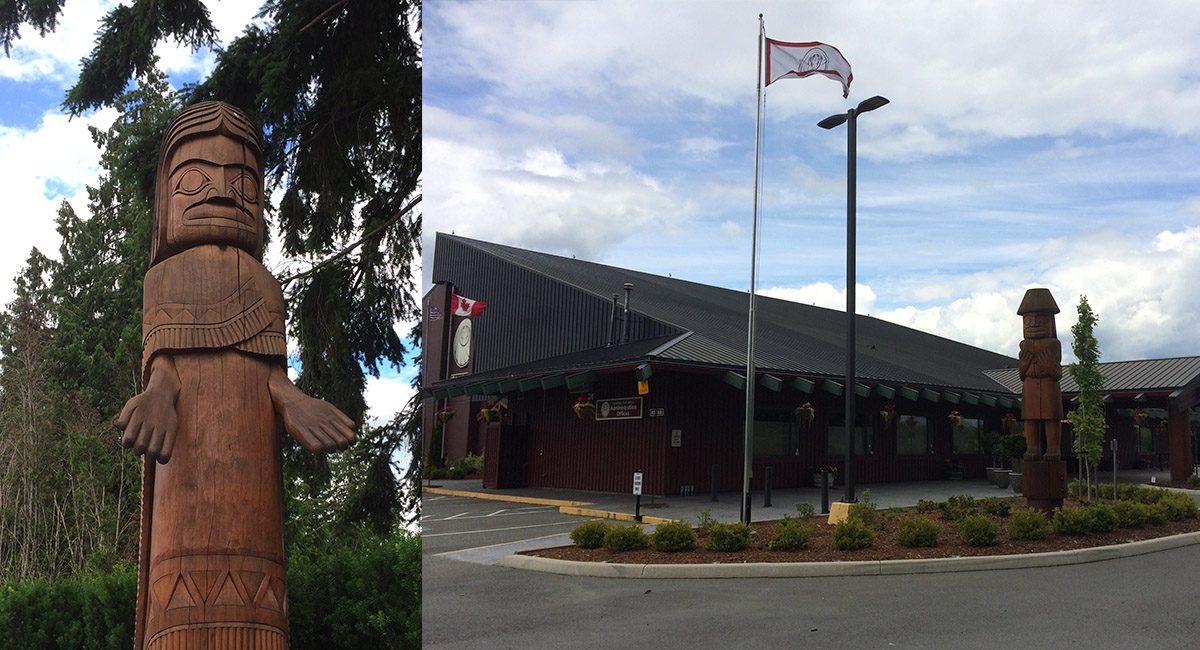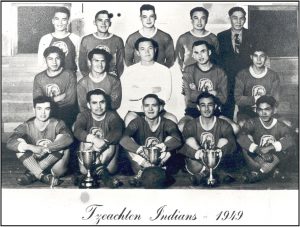Other SXTA Communities
Ch’iyáqtel is located in the heart of Sardis, BC in close proximity to the Chilliwack/Vedder River. Ch’iyáqtel Reserve #13, totals 283.8 hectares and shares an additional 64.8 hectares of the Grass Reserve lands, with eight of the neighboring First Nation communities within Chilliwack. It also shares 10.3 hectares of Pekw’xe:yles reserve lands in Mission and 23.5hectares of the Coqualeetza lands with 20 other bands of the Stó:lō Nation.
About the name – Ch’iyáqtel
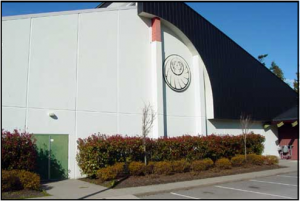 In the Halq’eméylem language Ch’iyaqtel means “fish weir”; “fish trap device”. The Halq’eméylem word Chiyáq means, “banging posts in” and tel means “place of the action of”. Ch’iyáqtel, was the fish weir location on the Chilliwack River. Weirs were fence–like traps which could be opened or closed and were built across wide slow moving rivers, and managed communally. The massive harvests were preserved on drying racks or smoked.
In the Halq’eméylem language Ch’iyaqtel means “fish weir”; “fish trap device”. The Halq’eméylem word Chiyáq means, “banging posts in” and tel means “place of the action of”. Ch’iyáqtel, was the fish weir location on the Chilliwack River. Weirs were fence–like traps which could be opened or closed and were built across wide slow moving rivers, and managed communally. The massive harvests were preserved on drying racks or smoked.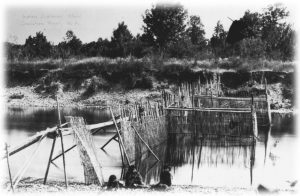
Ch’iyáqtel, Yeqwyeqwi:ws, and Skowkale First Nations totaled 1,012 hectares in 1864. After Trutch reductions, the three reserves totaled 81hectares. Today Ch’iyaqtel First Nation has a total membership of 469, of which, approximately 50% live on reserve. Ch’iyáqtel operates under its own election regulations.
Ch’iyáqtel Land Use Long Ago “I remember gathering berries, apples and cherries, everything is gone now, there used to be cherry trees behind grandma’s house on Ch’iyáqtel; BC Hydro took our orchard away. I still mourn that orchard. We used to can and preserve, we used to live off of the orchard as kids.” “Our family used to trade for fish and other resources from other families. I also remember blackberry picking along Bailey Road, now the bushes are gone. We also picked licorice root, blackcaps, and wild strawberries; you don’t see the wild strawberries around anymore. I remember picking huckleberries as a family up in the mountains.” “I remember going for a walk with my Aunt one day along what is now Chilliwack River Road. She said that there used to be a river that flowed along the road and the farmers dammed off the river to make the river go the way it flows now. Our people used to fish out of their back yards, the river flowed all the way from the Landing (Shxwhá:y) 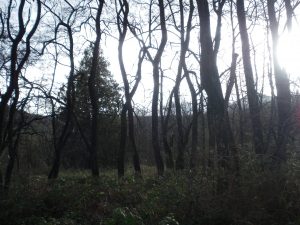 to Luckakuck Road.” “Our people used to canoe on the river to visit each other at different places and sang songs all the way on their journeys up the river to visit each other and to trade. Every family had a welcome song, a thank-you song, a paddle or travel song and a leaving song. The songs meant peace and not to fight with them. They knew by the travel songs that they sang who was coming, and would get ready for the visitors. The home families would sing the welcome song to the visitors. When the visitors would leave, they would sing the thank you song, to let the home families know that they were leaving in peace. ”Excerpts from One-on-One Lands Interview with Ch’iyáqtel member Amelia Roberts
to Luckakuck Road.” “Our people used to canoe on the river to visit each other at different places and sang songs all the way on their journeys up the river to visit each other and to trade. Every family had a welcome song, a thank-you song, a paddle or travel song and a leaving song. The songs meant peace and not to fight with them. They knew by the travel songs that they sang who was coming, and would get ready for the visitors. The home families would sing the welcome song to the visitors. When the visitors would leave, they would sing the thank you song, to let the home families know that they were leaving in peace. ”Excerpts from One-on-One Lands Interview with Ch’iyáqtel member Amelia Roberts
Grove of Black Locust Trees Black Locust trees were planted on Ch’iyáqtel for use as fuel for the steamboats that made their way into the valley. The trees were planted by the Stó:lō specifically for this purpose, as the tree is not native to Canada but to the USA. The trees are located on Thomas Road, on the left hand side just off Promontory Road. There are more trees on Promontory Road across from and beside the Ch’iyáqtel Community Centre.
Tzeachten Indians Soccer Team Won the Loving Cup, in 1932-33, 1945-46, 1949-50 .The cup was competed for in Chilliwack annually from the 1920’s to the 1950’s.
Photograph consists of group portrait of Tzeachten Indians Soccer Team, 1949. Back row (left to right): Len Hall, Norm Wealick, Walter Ling, Gordon Hall, and Coach Ritchie Malloway. Middle row (left to right): Merle Julian, Stan Joe, Oliver Uslick, Art Hall, Richard Julian. Front row (left to right): Ernie Ling, Wesley Sam, Ed Wealick, Rob Sepass, Skip Malloway. Three cup trophies sit in front of players. Photo courtesy of the Chilliwack Museum & Archives
Ch’iyáqtel – Development
Ch’iyáqtel owns the Vedder Crossing Plaza, where stores and businesses such as Save-On Foods, Tim Horton’s, Royal Bank, Booster Juice, a Medical Clinic and Lab, Great Canadian Dollar Store, First Choice Haircutters and other retail outlets service the Chilliwack community. There are also a number of businesses on-reserve that are owned by band member entrepreneurs which include: Bear Image Productions and the Shell Station.
Joy Hall
Ch’iyáqtel – Population
Ch’iyáqtel’s current population is 576, making it the largest SXTA community.
